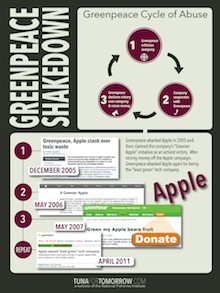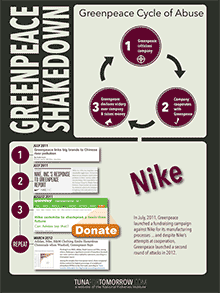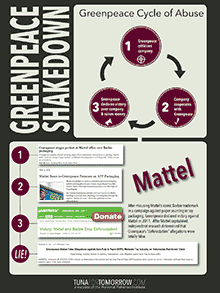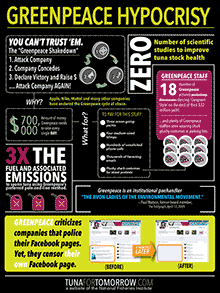We’ll give Greenpeace credit for one thing—they’re flexible. When coverage of their arbitrary report on seafood sourcing among grocery retailers completely dried up, they tried to retrofit the tactic for the food service industry. When companies got wise and stopped subjecting themselves to Greenpeace’s cycle of abuse, GP stopped even pretending to seek engagement with those companies and skipped right to attacking them.
And now, just a week after their latest fact-free “ranking” of major seafood brands blew it by ignorantly focusing on transshipment from purse seine boats, Greenpeace is showing its flexibility once again. It’s rehashing the same cut-and-paste attack on longline boats instead. They’re even getting the band back together, their big union allies.
When one target stops cooperating, Greenpeace picks another name out of the hat. When an issue fails to resonate, they don’t ramp up their commitment to the issue… they just change issues. When they get it wrong on the facts, they just make up new facts.
Maybe it’s because the substance of the attacks don’t matter to Greenpeace, only their effectiveness at driving mouse clicks to that “donate” button.
But reporters, Greenpeace donors, conscientious consumers, and anyone who cares about real seafood sustainability should ask Greenpeace how they expect to be taken seriously when the fishing methods they have long advocated were just found by scientists at the University of California to have a worse environmental impact than the status quo?
We know Greenpeace never did a single environmental or economic impact study on that issue, because we spent years calling on them to do so. But what about this new call to end transshipments from longline boats? Do they plan to learn from their mistakes on the FAD free campaign and actually study whether their demand is consistent with their own purported environmental priorities? We’re not going to hold our breath. We suspect Greenpeace is already at work on its next fundraising scheme, ready to roll it out whenever this one outlives its usefulness.








